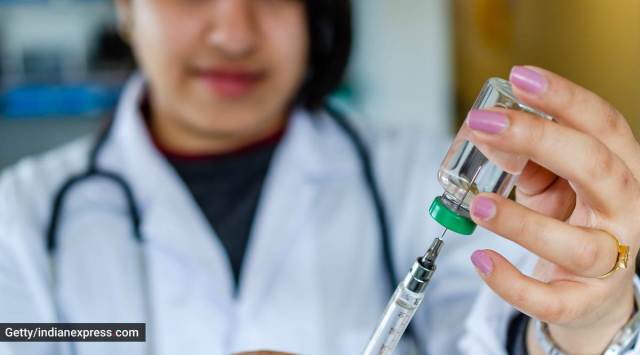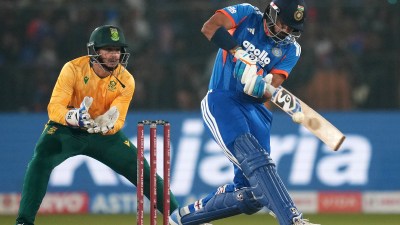THOSE WHO have recovered from Covid are advised to get a vaccine shot to develop strong immunity; those who have tested positive should defer vaccination for 14 days after symptoms are resolved; all beneficiaries have to register officially for vaccination; and, the vaccine will not be administered to those who don’t produce a photo ID at the site.
With one of the world’s largest immunisation drives against Covid set to roll out in India early next year, these are the Union Health Ministry’s answers to some key questions on the administration of the vaccine among 21 FAQs compiled for the public, and an additional six for healthcare providers and frontline workers.

The Government expects to vaccinate approximately 30 crore beneficiaries on priority in the early phase. And for the first time, multiple vaccine candidates will be administered against one infection. “…all the COVID-19 vaccines that receive license will have comparable safety and efficacy. However, it must be ensured that the entire schedule of vaccination is completed by only one type of vaccine as different COVID-19 vaccines are not interchangeable,” the Ministry said.
With India crossing 95 lakh recovered cases by Friday, the Ministry said that it will still be advisable for a recovered patient to take the vaccine. “…it is advisable to receive a complete schedule of COVID vaccine irrespective of the past history of infection with COVID-19. This will help in developing a strong immune response against the disease,” it said.
Significantly, the Ministry said, those who have tested positive “should defer vaccination for 14 days after symptoms resolution” as they “may increase the risk of spreading the same to others at (the) vaccination site”.
According to the Ministry, “two doses of vaccine, 28 days apart, need to be taken by an individual to complete the vaccination schedule… Protective levels of antibodies are generally developed two weeks after receiving the 2nd dose of COVID-19 vaccine.”
The Government also reiterated that in the initial phase, the vaccine will be provided to the priority group: health care and frontline workers — “50-plus age group may also begin early based on vaccine availability”. It said that those above 50 will be divided into two subgroups: 60 and above who will be vaccinated first, and 50-60 next.
Story continues below this ad
“The eligible beneficiaries will be informed through their registered mobile number regarding the Health Facility where the vaccination will be provided and the scheduled time for the same. This will be done to avoid any inconvenience in registration and vaccination of beneficiaries,” it said.
For healthcare and frontline workers, the Ministry said that their families will be vaccinated in the subsequent phases. “Due to the limited vaccine supply in the initial phase, it will first be provided to people who are at higher risk of contracting COVID-19. In subsequent phases, the COVID-19 vaccine will be made available to all others in need of the same,” it said.
The Ministry said that it will be mandatory for beneficiaries to notify the Government, irrespective of whether they have been vaccinated in a government programme or at a private facility. It said that “registration of the beneficiary is mandatory for vaccination…only after registration will the information on the session site to visit and time be shared…”
The Government has also listed common adverse reactions — fever, body ache — that a beneficiary can experience after the vaccination sessions. “We request you to rest at the vaccination centre for at least half an hour after taking the COVID-19 vaccine. Inform the nearest health authorities / ANM / ASHA in case you feel any discomfort or uneasiness subsequently,” it said.
Story continues below this ad
Elaborating on the procedure involved, the Centre said the document needed for registration can be any of the ten listed: driving licence, MGNERGA job card, PAN card, bank passbook, passport, pension document, voter ID, official IDs of MPs/ MLAs/ MLCs, government-issued service ID card and health insurance smartcard issued by Ministry of Labour. “Photo ID is a must for both registration and verification of beneficiary at the session site to ensure that the intended person is vaccinated,” it said.









